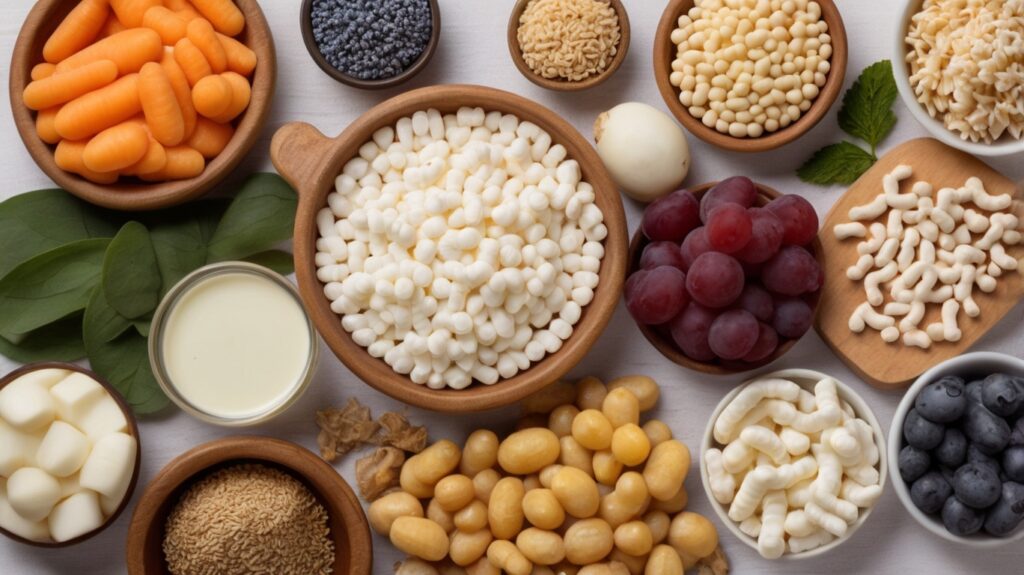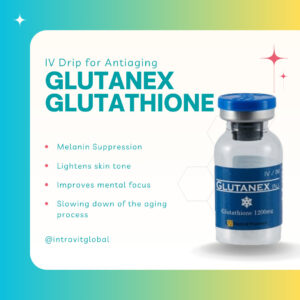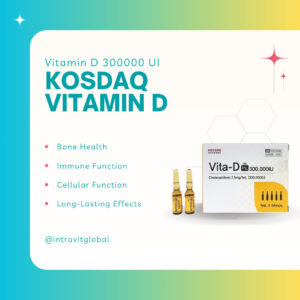Prebiotics vs Probiotics: Understanding the Difference for Better Health
Table of Contents

Understanding the Difference for Better Health
Introduction
Maintaining a healthy gut is crucial for overall well-being, and a growing number of people are turning to gut-friendly supplements like prebiotics and probiotics to support their digestive health. But what’s the difference between the two? And how can they benefit your body? Understanding the differences between prebiotics vs probiotics will help you choose the right supplements and foods to optimize your health.
What Are Prebiotics?
Prebiotics are non-digestible fibers that act as food for the beneficial bacteria in your gut. They help these bacteria grow and thrive, making them crucial for maintaining a healthy balance of gut flora. Essentially, prebiotics are the fertilizer that helps your gut bacteria flourish.
You can naturally find prebiotics in foods such as garlic, onions, bananas, and oats. By regularly incorporating these foods into your diet, you can promote a healthier digestive system and improve nutrient absorption.
What Are Probiotics?
Probiotics, on the other hand, are live microorganisms—typically bacteria or yeasts—that provide numerous health benefits when consumed in adequate amounts. Unlike prebiotics, which feed the existing bacteria in your gut, probiotics introduce new beneficial bacteria to your system, directly supporting digestive health.
Fermented foods like yogurt, kimchi, sauerkraut, and kefir are excellent sources of probiotics. Adding these foods to your diet can enhance your gut health, boost immunity, and improve nutrient digestion.
How Prebiotics Work in the Body
Prebiotics work by feeding the healthy bacteria already present in your gut, allowing them to grow stronger and more plentiful. This helps maintain a balance between good and bad bacteria, which is essential for digestive health. Additionally, prebiotics can improve bowel regularity, reduce inflammation, and support a healthy immune system.
How Probiotics Work in the Body
Probiotics are different because they replenish and diversify the gut microbiome by introducing new, beneficial bacteria. These microorganisms help break down food, absorb nutrients, and protect against harmful bacteria. Regular intake of probiotics can improve symptoms of digestive disorders like irritable bowel syndrome (IBS) and boost your body’s natural defenses.
Key Differences Between Prebiotics and Probiotics
When comparing prebiotics vs probiotics, it’s important to remember their distinct roles. Prebiotics are the food source for your gut bacteria, while probiotics are the beneficial bacteria themselves. Both are necessary for maintaining digestive health, but they function differently in supporting a healthy gut.
| Prebiotics | Probiotics |
|---|---|
| Non-digestible fibers | Live microorganisms |
| Feed existing gut bacteria | Introduce new beneficial bacteria |
| Found in plant-based foods | Found in fermented foods |
Benefits of Prebiotics for Gut Health
Prebiotics offer several health benefits, particularly for digestive health. By nourishing your gut bacteria, they help improve digestion, reduce bloating, and enhance overall gut function. Furthermore, prebiotics have been shown to reduce the risk of certain diseases like colorectal cancer and improve calcium absorption for stronger bones.
Benefits of Probiotics for Gut Health
Probiotics also have a wide range of health benefits. They play a crucial role in balancing gut bacteria, which can improve digestion, prevent infections, and enhance the immune system. Probiotics have also been shown to reduce the symptoms of gastrointestinal disorders such as diarrhea and constipation, making them a valuable supplement for gut health.
Combining Prebiotics and Probiotics: The Symbiotic Effect
Combining prebiotics and probiotics creates what is known as a “synbiotic” effect, where the prebiotics help the probiotics thrive. Together, they can boost each other’s effectiveness, leading to a more robust gut microbiome. This combination can improve digestion, strengthen immunity, and enhance overall health.
Are Prebiotics or Probiotics Better for Digestive Health?
Both prebiotics and probiotics offer unique benefits for digestive health. Prebiotics serve as a foundation by supporting the growth of beneficial bacteria, while probiotics directly increase the population of healthy bacteria. For optimal gut health, it’s often recommended to include both in your diet or as part of your supplement routine.
Common Prebiotic Foods You Should Eat
Looking to boost your digestive health with prebiotics? Add these foods to your diet:
- Garlic
- Onions
- Asparagus
- Bananas
- Oats
- Apples
Common Probiotic Foods You Should Add to Your Diet
To increase your intake of probiotics, consider including these foods:
- Yogurt
- Kefir
- Kimchi
- Sauerkraut
- Miso
- Tempeh
Choosing the Right Gut-Friendly Supplements
When selecting prebiotic or probiotic supplements, it’s essential to look for high-quality options that contain effective strains of bacteria. Opt for supplements that contain multiple strains and are backed by clinical research. Always consider your personal health needs and consult a healthcare professional if necessary.
The Role of Prebiotics and Probiotics in Overall Health
Prebiotics and probiotics don’t just benefit your gut; they also play a role in improving overall health. From boosting your immune system to improving mental health, these gut-friendly supplements are linked to numerous health benefits beyond digestion.
Prebiotics vs Probiotics: Which One Should You Take?
Whether you should take prebiotics or probiotics depends on your individual health goals. If you’re looking to boost your existing gut bacteria, prebiotics are the way to go. However, if you need to restore balance to your microbiome, probiotics might be more beneficial. Ideally, a combination of both will provide the best results for your gut and overall health.
Where to Buy High-Quality Prebiotic and Probiotic Supplements
For those looking to purchase top-notch prebiotic and probiotic supplements, Intravit Global offers a wide range of gut-friendly products available throughout the United Kingdom, including cities like London, Manchester, Birmingham, and Glasgow. Their product line is designed to improve digestive health and enhance your overall well-being. Visit https://intravitglobal.com/shop to explore their full range of supplements today!
Conclusion
Understanding the difference between prebiotics vs probiotics is key to achieving optimal digestive health. Both play important but distinct roles in maintaining a healthy gut, and together, they can provide powerful benefits. Whether you choose to get them through food or supplements, incorporating prebiotics and probiotics into your routine can have a lasting positive impact on your overall health.
FAQs
- What are the main differences between prebiotics and probiotics?
- Can I take prebiotics and probiotics together?
- How long does it take for prebiotics and probiotics to improve gut health?
- Are there any side effects of taking prebiotics or probiotics?
- What is the best time of day to take prebiotic or probiotic supplements?
-
Vitamin Drips
Glutanex Glutathione 1200mg IV Drip for Antiaging, Melanin Suppression, Antioxidant Skin Brightness Benefits
£20.00 – £120.00 Select options This product has multiple variants. The options may be chosen on the product pageRated 0 out of 5 -
Vitamin Drips
Asconex Vitamin C (Ascorbic Acid) IV Drip for Antiaging, Melanin Suppression, Antioxidant and Skin Brightness Benefits
£10.00 – £70.00 Select options This product has multiple variants. The options may be chosen on the product pageRated 0 out of 5 -
Vitamin Drips
Kosdaq Vitamin D 300000 IU Cholecalciferol per vial box of 10 ampoules
£20.00 – £140.00 Select options This product has multiple variants. The options may be chosen on the product pageRated 0 out of 5
Checkout our Facebook Page and leave your review about our Health Care Products.






